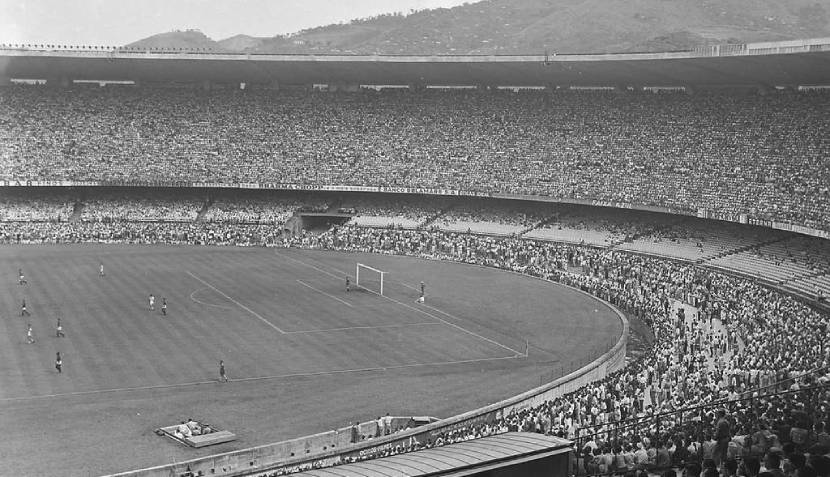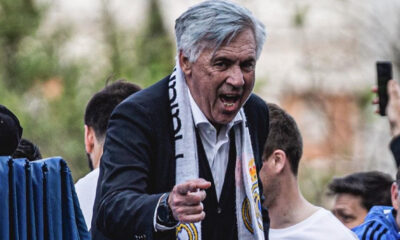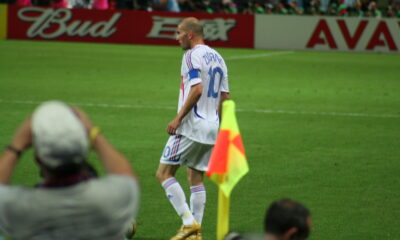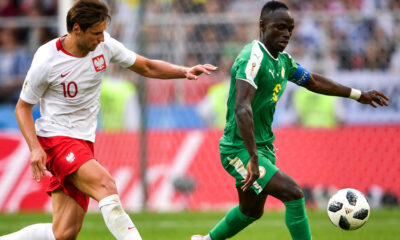Football
World Cup 1950 in Brazil: A bitter end for the Brazilians, a tournament without Czechoslovakia, another dose of bizarro
The 1950 World Cup in Brazil was the first World Cup after the Second World War, so it is not surprising that this championship was also accompanied by certain political influences. Sportingly, however, the tournament offered a great spectacle and even set a world spectator record.

The 1950 World Cup in Brazil was the first World Cup after the Second World War, so it is not surprising that this championship was also accompanied by certain political influences. Sportingly, however, the tournament offered a great spectacle and even set a world spectator record. Against all expectations, the title was not won by Brazil, but by Uruguay. France stayed away this time and Germany was banned from the competition. Czechoslovakia also did not take part in the championship, while England made its first start.
Although the 1950 World Cup in Brazil was the first championship after the Second World War, and therefore the first in 12 years, it was another successful championship in sporting terms. Albeit with many bizarre attractions.
A total of 34 teams took part in the qualification, and 13 teams played the final tournament. Specifically, there were six European representatives (England, Sweden, Switzerland, Italy, Spain, Yugoslavia) and seven participants from the American continent. These were Mexico, USA, Brazil, Uruguay, Bolivia, Chile and Paraguay.
First tournament for England, a World Cup without Czechoslovakia or Germany
Interestingly, this was the first World Cup in which the English national team took part. Those previous championships were generally boycotted by Great Britain, as they had their own tournament (British Home Championship) and the World Championship was not attractive enough for them.
Scotland also had the opportunity to play the 1950 World Championship in Brazil, but they declined to participate due to the fact that they were not the UK champions. France also withdrew from this tournament, due to the fact that Brazil, as the host country, refused to reschedule the first round matches, which were 3,000 kilometres apart.
Germany was banned from taking part in this championship, for political reasons, of course, in view of the aggression in previous years and the triggering of the Second World War. Czechoslovakia also did not take part in the 1950 World Cup in Brazil, where, because of the greatest war conflict in human history, many other issues were being dealt with than participation in the World Cup.
India also qualified for the World Cup in Brazil, but subsequently refused to participate because FIFA banned them from playing barefoot.
Estádio do Maracanã
The famous football stand, or rather this multi-purpose stadium, has always been one of the largest on the planet. Its original capacity was a staggering 200,000 spectators, but over time it has been upgraded and reduced in capacity.
In 2007, the stadium’s capacity was 82,238 seats, and the last major renovation was made to the Estádio do Maracanã before 2014, when Brazil hosted the 2014 FIFA World Cup. In 2016, the stadium also hosted the Olympic Games.
In any case, the Rio de Janeiro stadium set a world record for attendance when 199,584 spectators found their way to the deciding match of the tournament between Brazil and Uruguay.
The format of the tournament
A tournament without a knockout stage – this is what the 1950 World Cup in Brazil brought. And it is a historically unique affair, as nothing like it has been repeated in the history of all World Cups. FIFA divided the World Cup into four groups, with Groups A and B having four participants, Group C having three and the last Group D having only two.
It should be noted that Group A was clearly won by Brazil over Yugoslavia, Switzerland and Mexico without any major problems. In Group B, Spain clearly reigned supreme, winning all three matches, with the very ambitious England finishing in the group, as did Chile and the USA.
Sweden took first place in Group C ahead of Italy and Paraguay. Group D then offered only one match, in which Uruguay clearly defeated Bolivia 8:0.
The final group
As mentioned above, this 1950 World Cup in Brazil was thus “dispensed with” without a knockout phase, so the first team from each group advanced to the final group of four.
The final fourth place belonged to the Spanish (1 point), the bronze medal went to the Swedes (2 points). But the big surprise came in the battle for first place. Uruguay dominated the final group after three matches.
They first drew with Spain 2:2, then beat Sweden 3:2 and in the last tie won against Brazil 2:1 after goals by Schiaffino and Ghiggia. The Brazilians have so far gone through the tournament without any major problems, even in the final group they shot Spain 6:1 and Sweden 7:1.
Needless to say, this defeat was very hard for the home fans to bear. For more on not only the Brazilian defeat, but also on the World Cup in general, see our World Cup special attached above.
Brazil came through the final group with a score of 14:4, not surprisingly Brazil had the top scorer of the tournament, namely Ademir with 9 goals. A bitter end to an otherwise very successful tournament.
1. episode: 1930 World Cup in Uruguay
2. episode:: 1934 World Cup in Italy
3. episode:: WSC 1938 in France
5. episode:: MS 1954 in Switzerland
6. episode:: MS 1958 in Sweden
7. episode:: WSC 1962 in Chile
8. episode:: World Cup 1966 in England
9. episode:: 1970 World Cup in Mexico
10. episode:: MS 1974 in Germany
Sources: FIFA, ESPN












